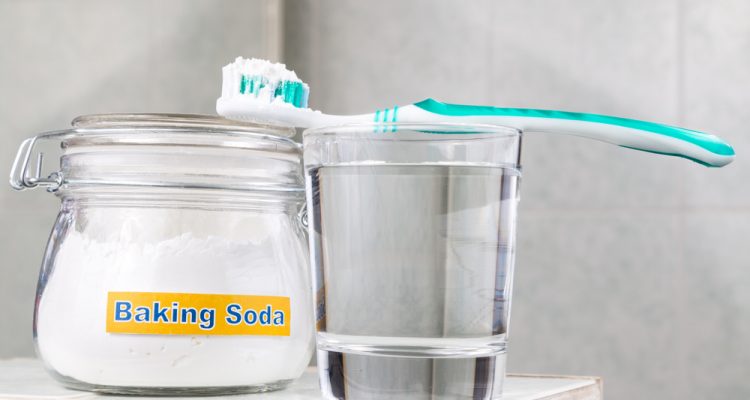You want whiter teeth, but you don’t want to pay for a professional service at your dentist’s office. Or perhaps you want a remedy that doesn’t involve using chemicals that are found in most commercial whiteners. Which leads you to the question: do natural teeth whitening methods work?
Below, we’ve outlined the facts behind several popular methods that claim to remove yellow stains and make your teeth whiter. At Boyett Family Dentistry, we encourage you not to make any attempt to whiten your teeth without first talking to your dentist. Even if you don’t want to pay for professional treatment, your dentist may be able to recommend safe and effective DIY kits for home use.
In the end, if you want whiter teeth you may decide that professional treatment is the best way to go after all. Keep reading to learn why.
Popular Natural Remedies
Today, advocates push several at-home, natural remedies that are “proven” to whiten teeth. However, most of these popular methods are not backed up by scientific studies, and some methods of natural teeth whitening may be dangerous for your teeth and mouth.
- Oil pulling. In traditional Indian medicine, oil pulling is the practice of pushing and pulling sunflower, sesame, or coconut oil between your teeth to remove bacteria from your mouth. It’s believed to reduce plaque build-up and prevent stains from forming. While oil pulling is not dangerous, there’s no conclusive proof that it aids in teeth whitening.
- Apple cider vinegar. Apple cider vinegar is a natural disinfectant, and advocates claim it can “cure” everything from head lice, to cancer, to tooth decay. It’s believed to kill bad bacteria in your mouth, which can help prevent plaque build-up and stain formation. Not only are there are no scientific studies to back up these claims, but apple cider vinegar can harm your oral health. Vinegar is highly acidic and swishing it around in your mouth or letting it touch your teeth for long periods can cause enamel erosion.
- Baking soda. Baking soda does have some known oral health benefits. It’s a mild abrasive that can scrub away yellow stains to whiten teeth, and it helps prevent bacteria from growing in your mouth. However, many professionals do not recommend using baking soda alone to brush or whiten teeth. Because it’s an abrasive, prolonged use on your teeth can lead to enamel erosion. And scientists have found that a toothpaste containing baking soda is much more effective at teeth whitening than baking soda is by itself.
- Hydrogen peroxide. Hydrogen peroxide is a natural bleaching agent found in many commercial teeth whitening kits. But improper use can damage your teeth and gums. In strong concentrations, or with frequent use, hydrogen peroxide can cause tooth sensitivity, gum irritation and enamel erosion. If you want to use a DIY at-home whitening kit with hydrogen peroxide, ask your dentist about safe concentrations first, and always adhere to the directions on the package.
- Fruits. There are some claims that naturally acidic fruits like oranges, limes and lemons, or fruits that contain digestive enzymes, like mangoes, papayas and pineapples, can remove stains and whiten teeth. There is no scientific evidence to support these claims. And even though fruit is heathy for you to eat, high levels of acids in oranges, limes, and lemons can erode tooth enamel.
- Activated charcoal. Activated charcoal is a mild abrasive and may be able to remove stains from your teeth. But there’s no evidence that scrubbing with charcoal leads to whiter teeth. Like with other abrasive materials, overusing charcoal will wear down your tooth enamel.
Effective Natural Ways to Whiten Teeth
The good news is that there are natural ways you can keep your teeth whiter and brighter that don’t use potentially harmful DIY methods. The best preventative measures include:
- Limit intake of stain-causing foods and drinks. Cut down on foods and drinks that cause yellow stains, like wine, coffee, tea, berries, tomatoes and tomato sauces, candies, sodas, and juices. You don’t have to eliminate all these items from your diet – tea, berries and tomatoes are high in healthy nutrients and antioxidants – but eat and drink them in moderation.
- Eat more crunchy fruits and veggies. Add more crisp, raw produce like carrots, celery, and apples to your diet. Crunchy foods are natural mouth cleaners and scrap away plaque as you chew. Crunchy foods also stimulate saliva flow, and saliva helps clean your mouth and remove bad bacteria.
- If you smoke, quit. Tobacco use is harmful for your oral health and increases your chances of developing gum disease and oral cancer. Additionally, tar stains your teeth an unappealing and dingy yellow.
- Brush and floss every day. Brushing and flossing rids your mouth of stain-causing bacteria and plaque. Brush your teeth twice a day for 2 minutes at a time with a fluoridated toothpaste and floss once a day. For better teeth whitening results, look for ADA-approved toothpastes that contain baking soda or peroxide.
- Visit your dentist regularly for check-ups. Seeing your dentist for regular check-ups and cleanings is one of the best steps you can take for better oral health. Your dental hygienist will provide a deep cleaning that removes plaque build-up and leaves your teeth looking cleaner, whiter, and brighter.
While the preventative measures above can help prevent yellow stains, if you want to see real whitening change then we recommend a professional whitening treatment. Natural teeth whitening methods or DIY at-home kits are not as fast or effective as a professional treatment administered by your dentist.
Here at Boyett Family Dentistry, we offer safe and effective professional whitening treatments. For more information or to schedule your appointment, call us today at 863-294-9200.



